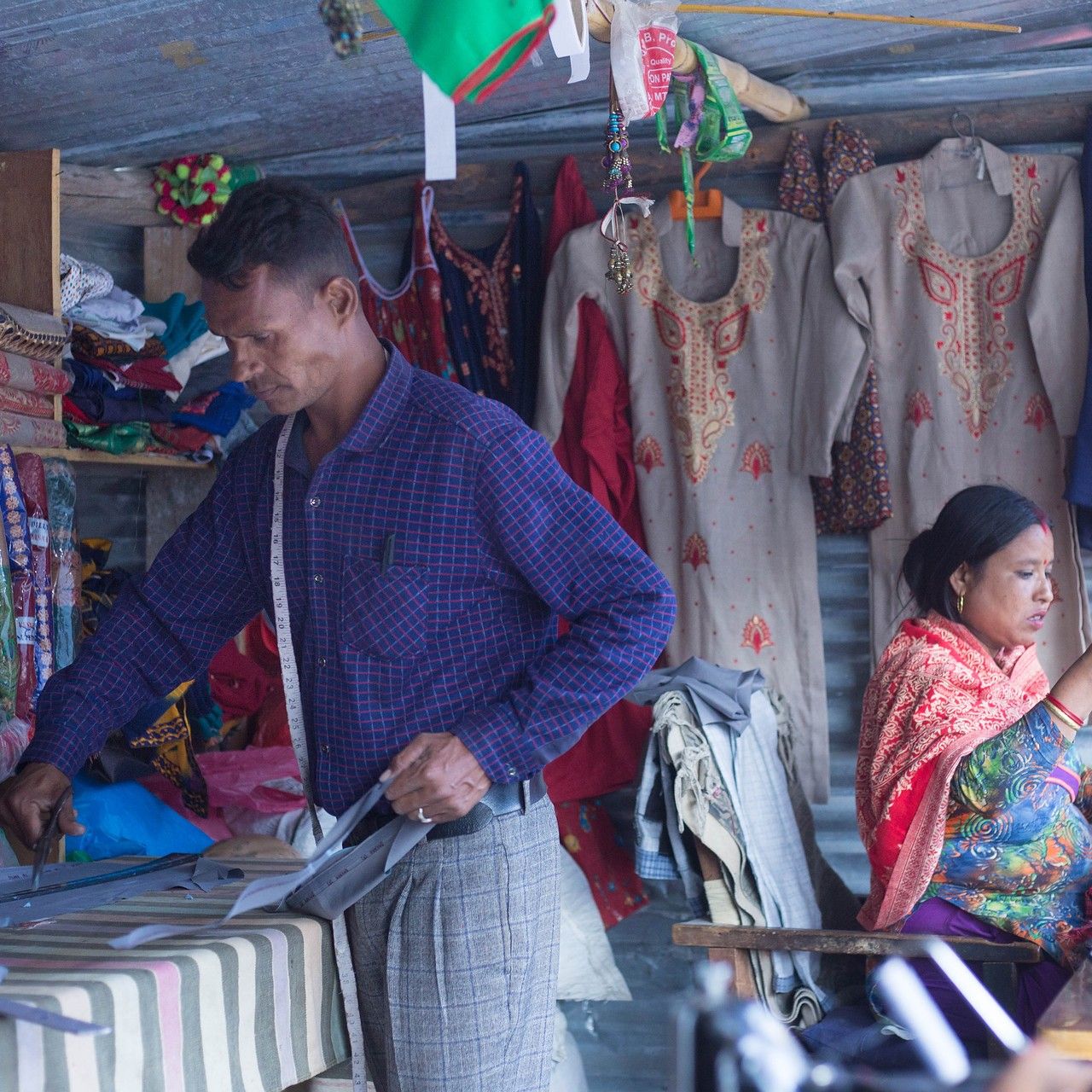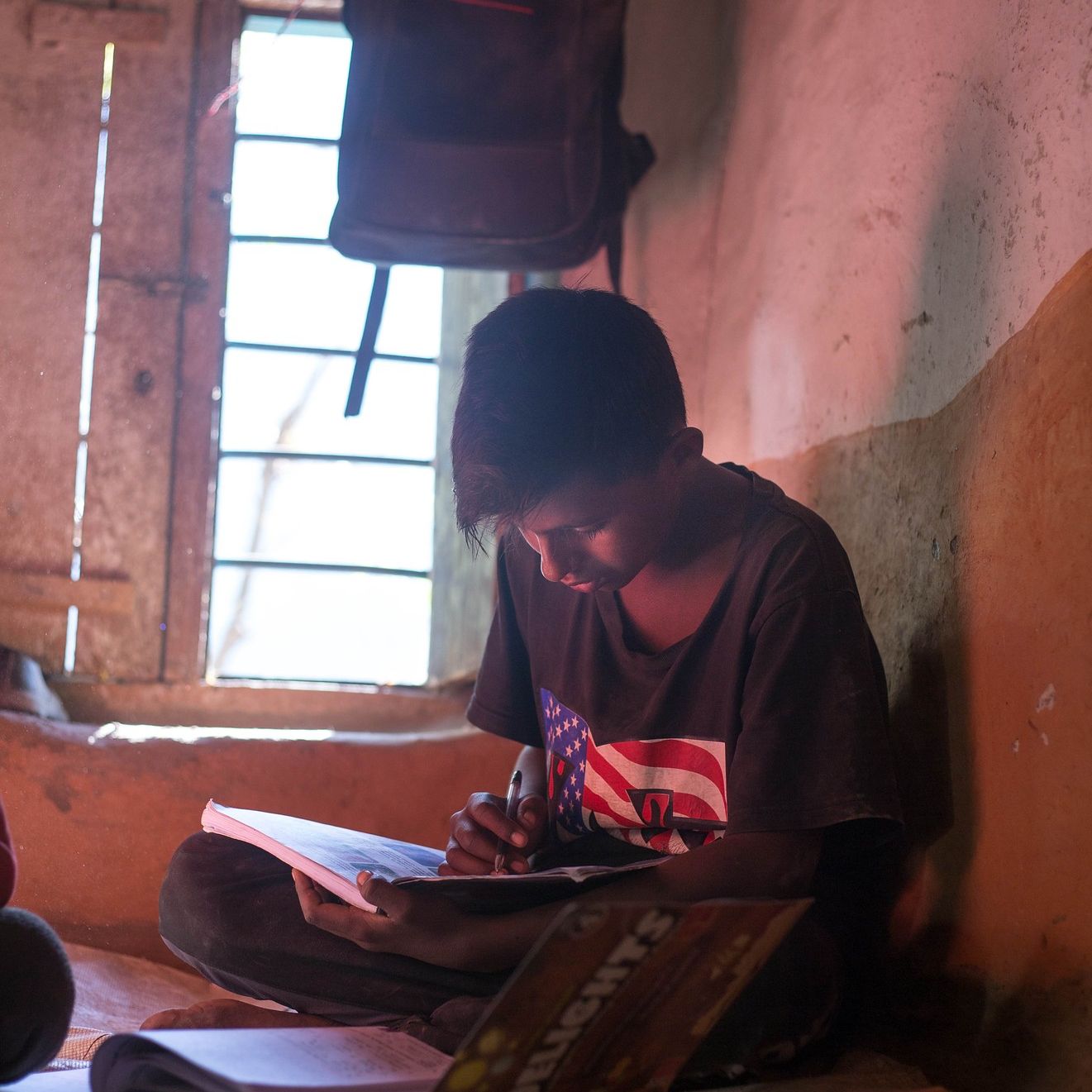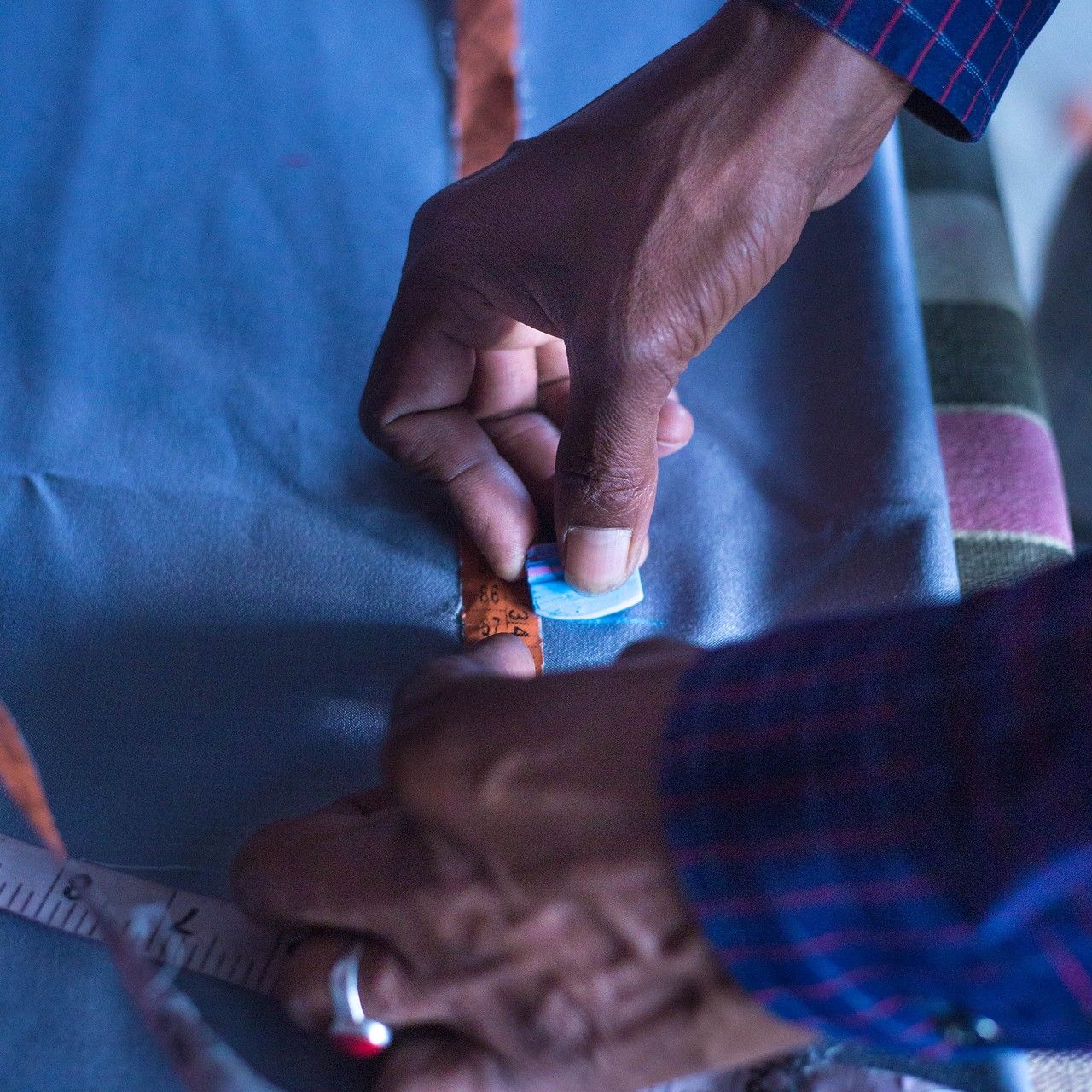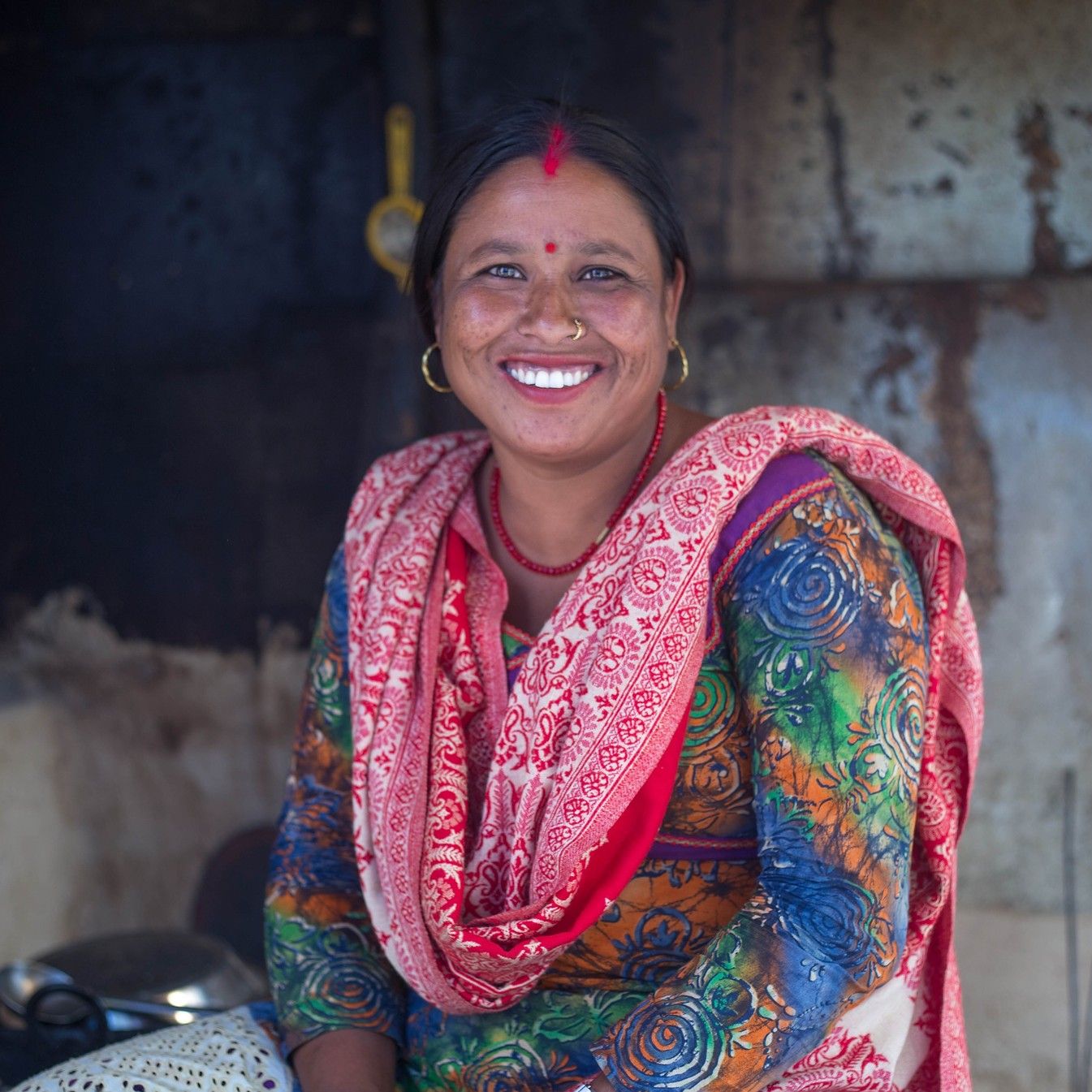
She has improved her skills on buying and selling fabric, working efficiently, and saving money so much that she has even begun training other women in her community.
The tailor
Dipu Dholi
“I am an independent woman and make enough money to support our living.”
One day, during the Nepalese Civil War, Dipu’s father was playing a game of cards. Soldiers barged into the room and, mistaking him for an insurgent, killed him. Dipu was six years old. After that, despite the odds working against a poor, young Nepali girl, she managed to finish secondary school, got married, and, today, has a family of her own.
In the past, she struggled; she/ did not always make enough money. She and her husband did not have skill-related jobs, so they worked as daily wage labourers.
Today, however, her financial situation is much better. Thanks to the the Bridge project project, she has learned about the importance of working efficiently and saving money. The project provided training for tailors like Dipu. She reviewed all the key steps: how to take measurements, draft them on brown paper, and stitch clothing. Plus, she learned how to improve her business by brushing up on skills like buying and selling fabric. Post-training, she began training other women in her community.
Her sewing and business skills are certified and nationally recognized by Nepali employers. She took out a loan and bought a sewing machine, and her tailoring business has only grown from there.
Every day, she wakes up at 5 a.m. to check on her cows and do some household chores. She prepares tea and bread for breakfast. And then she starts walking to work; there is no road access in her village.
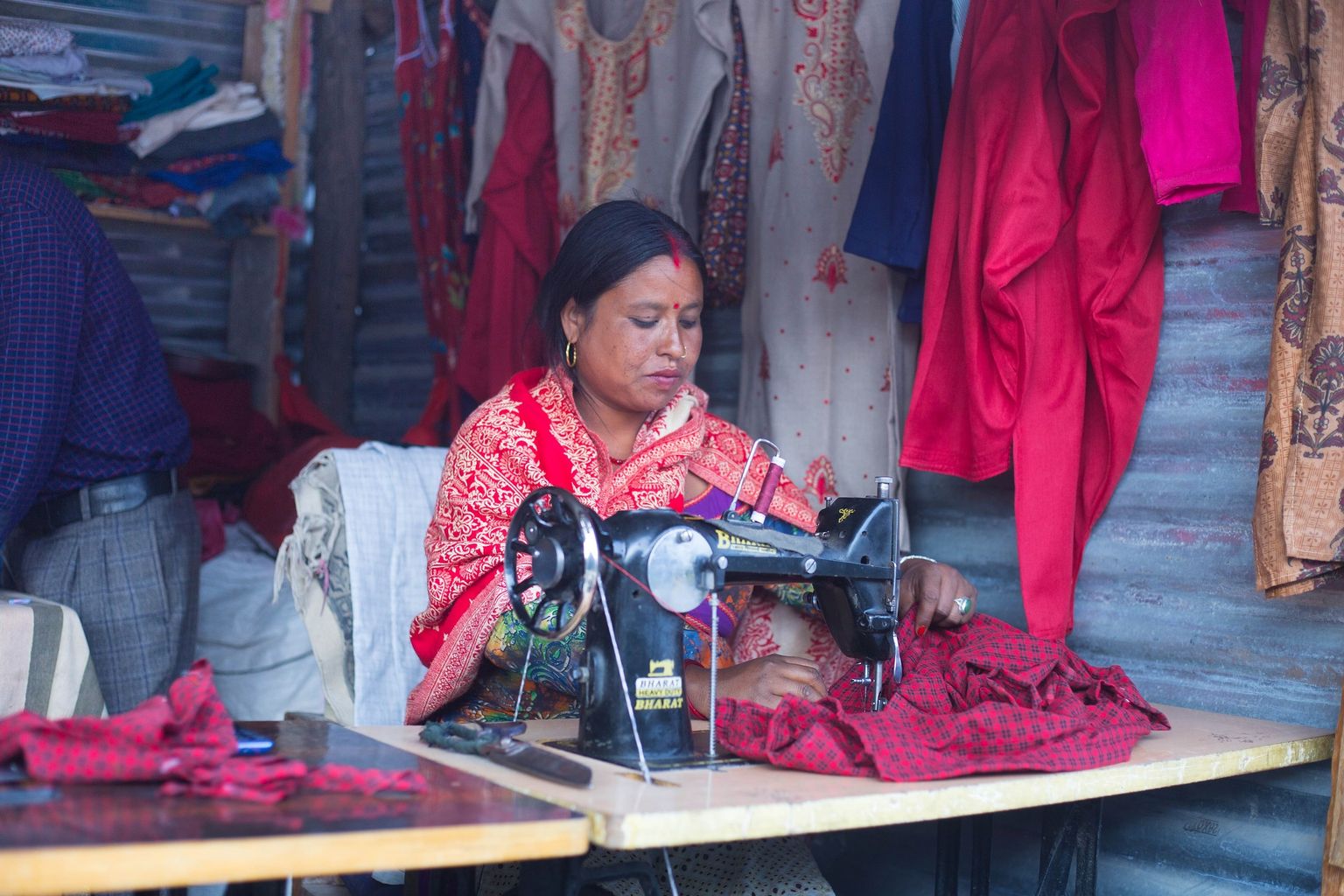
Her daily routine, which starts at 5 a.m., includes drafting, cutting, and pressing clothing. She also provides training for other women and buys raw materials for her shop.
Her children are top of mind. She’s doing all this to save money for her children’s schooling.
A lot has changed for her. She remembers when, working under a master tailor, she was too scared to ask questions and didn’t feel confident in her cutting and stitching skills.
After the training, I am not scared anymore. Now, I can stitch perfectly.
Today, Dipu has everything she needs. In fact, these days, her children make new requests: they want to eat foods of different varieties. She does her best to fulfill their wishes. She can afford a range of foods, books and stationery, and good-quality slippers and shoes. Her income from the tailor shop, which increased after the training programme, is enough to support her expenses.
To her, the most important thing in life is to never give up. She turns to her neighbors and relatives, not to mention her savings, to overcome challenges. Her determined attitude and positive outlook on life is something she looks forward to passing on to her children, aged 12 and 8.
They both attend school – a better one, now that Dipu can afford it.
“I dream of sending my children to a private boarding school and seeing them working in the best institutions.”
